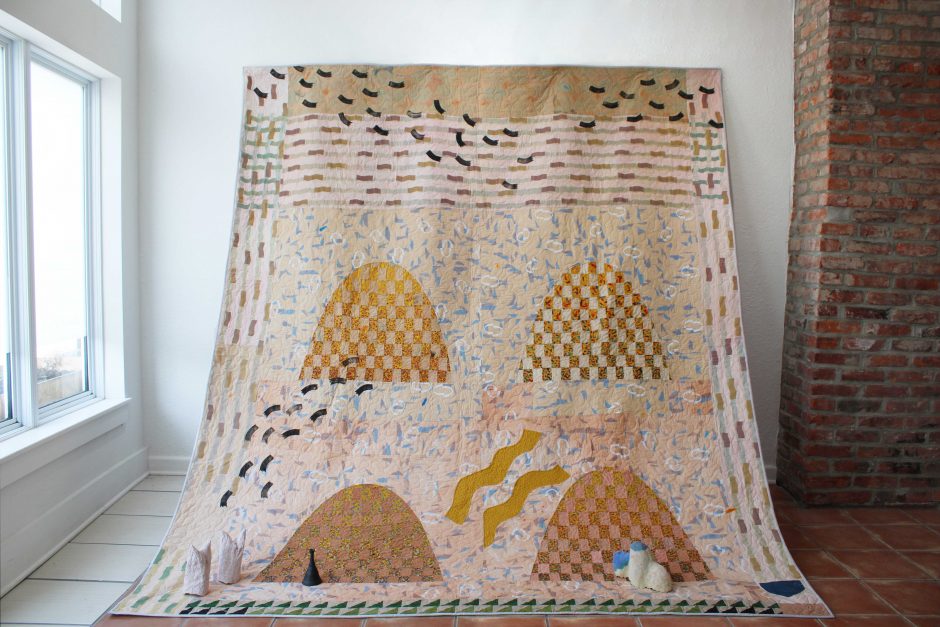2 off-campus courses cited for best practices
The Forum on Education Abroad identified courses by Professor of History Catherine Stewart and David Joyce Professor of Economics and Business Todd Knoop as representative of best practices in student learning and development and academic framework.
Stewart’s course takes students to The Bahamas to study slavery, and Knoop’s course travels to China to study macroeconomics.
Slavery and the Environment in a Comparative Context
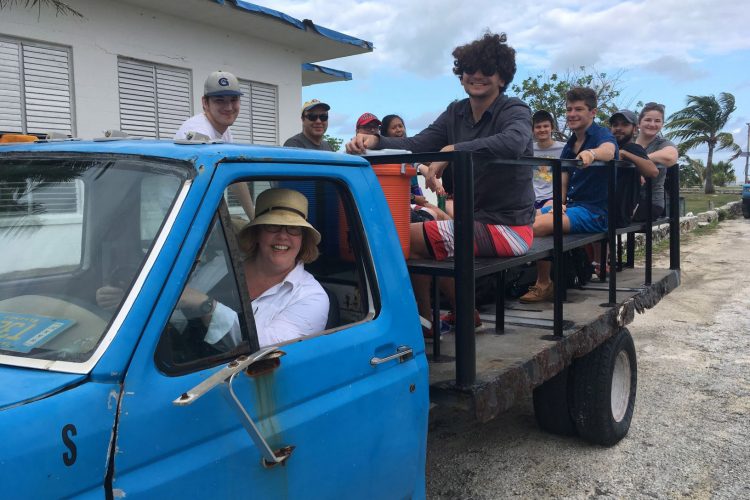
Stewart’s course, Slavery and the Environment in a Comparative Context, offers a rare opportunity to explore historic slave plantation ruins on a remote island in the Bahamas as a means of interpreting the history of slavery.
“I was inspired to develop this course when I discovered the publication of a private journal kept by a British Loyalist slaveholder, Charles Farquharson,” Stewart said. “This journal—now a UNESCO protected document—is the only one in existence that documents life on a Bahamian plantation, and I was amazed to learn that Farquharson’s plantation, Prospect Hill, was located on the island of San Salvador, where its ruins are still very much in evidence.”
Stewart’s students examine the journal alongside the “texts” of plantation site ruins to explore how environmental contexts shaped economic and social relationships between plantation holders and their enslaved populations. Island expeditions help students connect text-based information regarding seasonal work cycles, labor assignments, interpersonal interactions, and other events on the island, with the essential elements of geography, spatial location, and environmental factors.
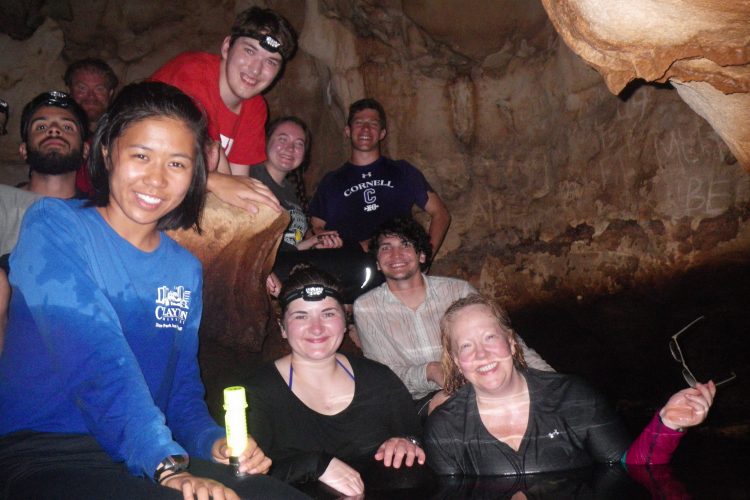
One of their expeditions is to underground caves on the island. After reading about maroon communities of runaway slaves in other Caribbean locations, Cornell students learn that limestone carbonate helped form extensive underground caves on San Salvador, and the importance of caves for secret meetings and the continuation of African religious and spiritual practices.
Every course activity provides an opportunity for examining and understanding the experience of the enslaved, said Stewart, author of the award-winning 2016 book “Long Past Slavery: Representing Race in the Federal Writers’ Project.”
Macroeconomics Seminar: Traveling Economists in China
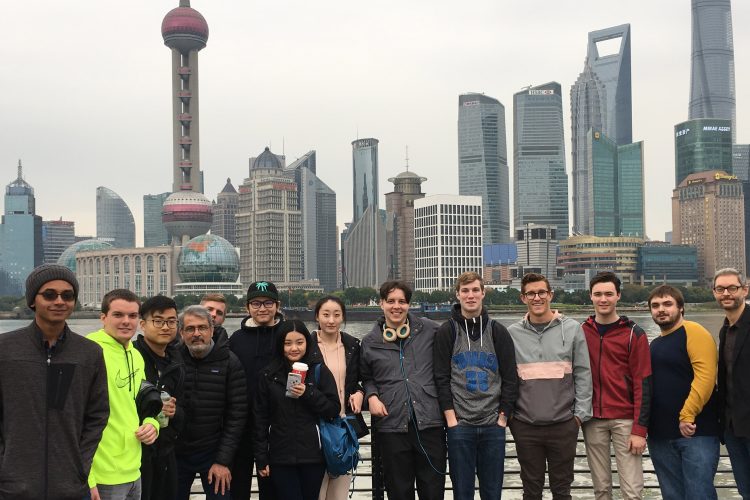
Knoop’s Macroeconomics Seminar: Traveling Economists in China has two primary goals: To understand the incredible economic development of China, and to refine the ability to think like an economist.
Knoop, author of the 2017 book “Have Economics, Will Travel: Using Economics to Think about What Makes Us All so Different and the Same,” teaches his students to focus on the ways incentives shape behavior.
“Economics is a powerful tool that can be used to make each of us much more perceptive observers. As a result, developing a deeper understanding of economics is an important part of becoming a better traveler,” Knoop said. “In the words of Samuel Johnson, ‘The use of travelling is to regulate imagination by reality, and instead of thinking how things may be, to see them as they are.’ In this class, our goal is to become both better economists and the kinds of travelers that get the most out of their experiences.”
Knoop says China is a particularly great place to be a careful observer of economics, which means observing incentives and how people react to them.
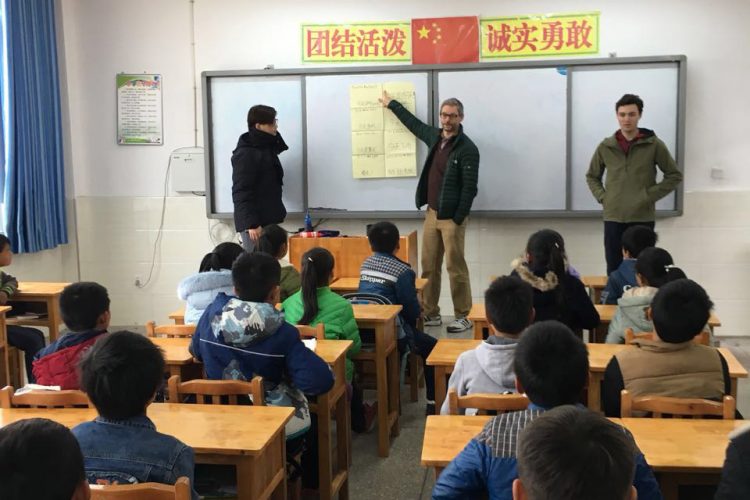
“No country in the world has experienced the change—both good and bad—that China has experienced over the last 70 years. From the Japanese occupation, to the civil war, to the Communist revolution led by Mao, to the Great Leap Forward, to the Cultural Revolution, to the economic revolution of Deng, China has tested more good and bad economic practices than anywhere else on the globe,” Knoop said.
China provides a unique cultural experience in which to examine the interplay between economics and culture, and how one impacts the other. The ancient history of China provides a contrast to the more flexible social and governmental institutions of the U.S. In addition, the rising global prominence of China makes understanding Chinese culture, Chinese society, and the Chinese economy absolutely critical to a wide range of professions.
During the seminar students visit a wide variety of businesses that illustrate the diversity of the Chinese economy. They participate in two service learning trips and visit landmarks including the Great Wall, Beijing’s Forbidden City and Tiananmen Square, Shanghai, Hangzhou, and stay in a traditional Miao village.


